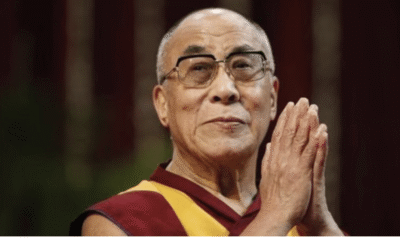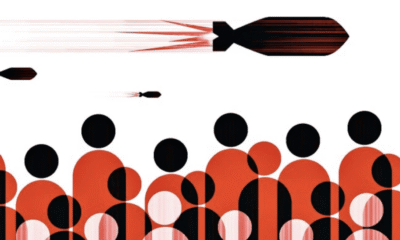
|
Getting your Trinity Audio player ready...
|
Kashmiris have been fed on the staple of special status, autonomy, and similar rhetoric for decades. There will continue to be the echoes of it for some more time. But, broadly, the urge today is for restoration of political authority
Kashmiris have been fed on the staple of special status, autonomy, and similar rhetoric for decades. There will continue to be the echoes of it for some more time. But, broadly, the urge today is for restoration of political authority
Prime Minister (PM) Narendra Modi’s meeting with the leaders of various political parties from Jammu and Kashmir (J&K) is significant for several reasons.
First, not a single invitee skipped or boycotted the meet. Second, this was perhaps the longest all-party meeting held on J&K in several years. The leaders spent close to four hours with the PM and his team. Third, not one of them has complained about the proceedings. On the contrary, everyone, including Mehbooba Mufti, admitted that the meeting was cordial, and they got the opportunity to candidly convey their views without anybody contradicting or interrupting them.
Delhi should draw the right inferences from it. Although delayed, as the PM admitted, this was an important move by him to complete the process initiated two years ago by annulling Article 370 and 35A. The response of the political stakeholders at the meet, especially those from the Valley, should be seen by Delhi as a reflection of the current sentiment among the people.
Kashmiris have been fed on the staple of special status, autonomy, and similar rhetoric for decades. There will continue to be the echoes of it for some more time. But, broadly, the urge today is for restoration of political authority. That dominant sentiment was expressed by majority of the leaders at the Delhi meet when they talked about the restoration of statehood, formation of new legislature and return of the reins of power to people’s representatives.
Condescension should not be the way to look at this important change of heart, nor should Delhi gloat derisively over the “capitulation” of the Kashmiri leaders. Instead, it must be understood as their willingness to leave behind contentious issues and move on. In that, the most important message that the Valley leaders have delivered to Delhi was that they trust the leadership.
“Kashmir needs a stern state”, Jagmohan told me in early 1990s when he was the governor of J&K. “We have pampered it like a mother. We should also be stern like a father”, he explained. Delhi has shown its sternness in the last couple of years. Kashmiris have got the message. Now is the time, not for pampering, but for positivity.
Mufti Mohammad Sayeed had made an important submission at the time of the formation of the Bharatiya Janata Party (BJP)-Peoples Democratic Party government that by agreeing to join hands with the BJP, six million Kashmiris had placed their trust and fate in the hands of a party that they perceived as Hindu. “Dil ki doori” can be bridged when Delhi understands the message of the present meeting also, not from the hyperbole of 9 pm television news, but with a pragmatic eye.
The Delhi meet was also significant because of the prominence given to the political leadership by relegating non-political operatives, including officials and agencies, to a backseat. The travesty of J&K has been that it was sought to be handled through non-political players over all these decades. The metaphorical “Delhi ki doori” was a result of this cockeyed handling only.
One of the achievements of Mufti-BJP government, during its short-lived stint of less than a year, was to restore primacy of the political leadership. PM Modi gave a clear indication of similar intention when he said at the meet, “Our priority is to strengthen grassroots democracy. Delimitation has to happen at a quick pace so that polls can happen, and J&K gets an elected Government that gives strength to its development trajectory.”
The annulment of Article 370 was the first step in building a “Naya Kashmir”. The next natural step should be to build a “Naya Agenda”, new agenda. The PM had set the tone for it at the meeting calling for a “corruption-free, developed and progressive J&K, where all-round growth is furthered”. ‘All-round growth’ also meant attending to the injustices meted out to sections of the population such as the Kashmiri Pandits, people of Jammu, refugees, among others.
The scrapping of Article 370 has paved the way for that. But the traditional Valley parties have an aversion to this agenda. They thrived on an agenda of separatism and hate. Some of them continued to peddle that fake agenda by invoking issues such as the restoration of Article 370 and special status at the meet. But these parties have increasingly lost their relevance in the state over the last few years. People are in no mood to fall for their jumlabazi anymore.
That should lead to the rise of a “Naya Netritva”, new leadership, in the state. Indications of the rise of that new leadership were discernible at the Delhi meeting itself where the traditional players such as the PDP and National Conference were seen sharing the platform with relatively new entrants such as Sajjad Lone and Altaf Bukhari, with all getting an opportunity as equal stakeholders.
There was a time when the Valley’s politics was dominated by one party and one family. The Atal Bihari Vajpayee years brought a new player – PDP – into the ring. The time has come for more such parties to occupy political space in the state. Some in Delhi expect the new players to be the amplifiers of Delhi’s ruling establishment. National parties such as Congress and BJP are there for that. What the state needs are not “mouthpieces” of Delhi, but genuine representatives of the people. The PM’s message that “it is the people, especially the youth, who have to provide political leadership to J&K, and ensure their aspirations are duly fulfilled” should be understood in that spirit.
(The article was originally published in Hindustan Times on June 25, 2021. Views expressed are personal.)



